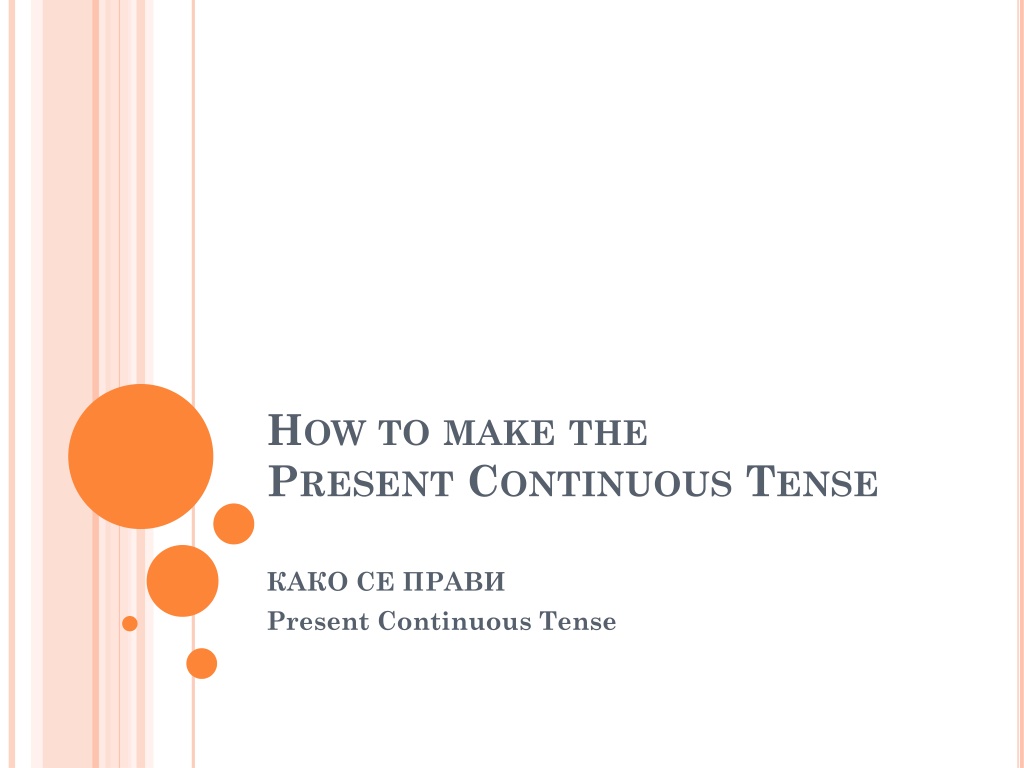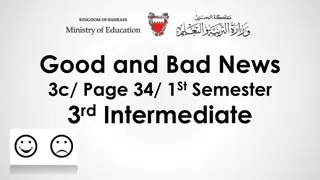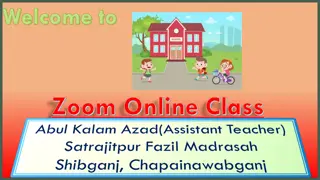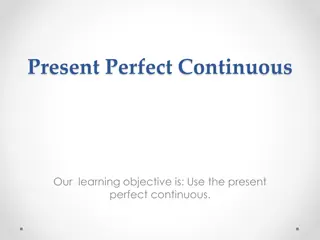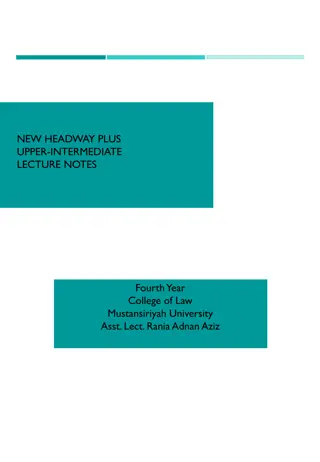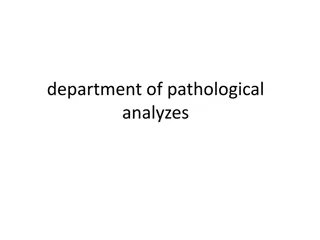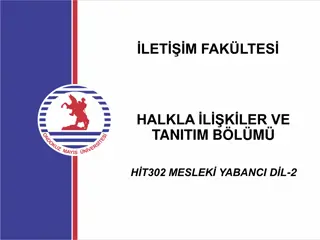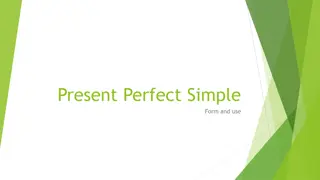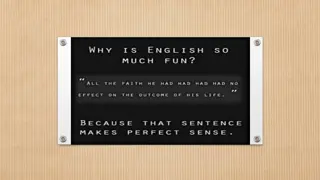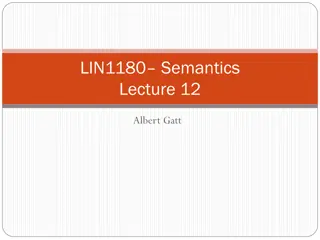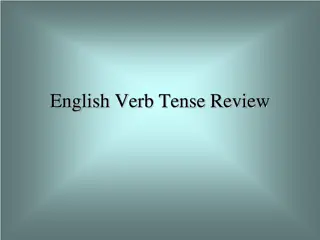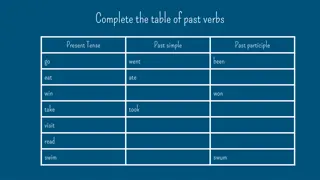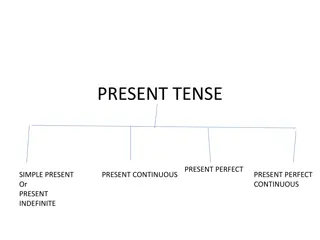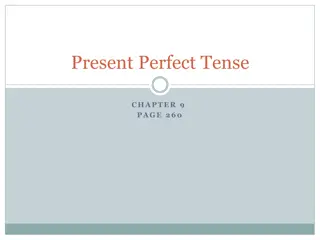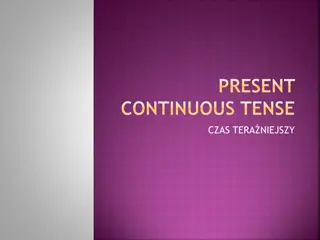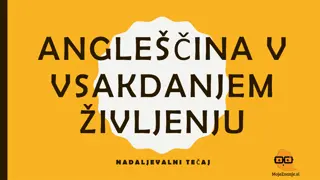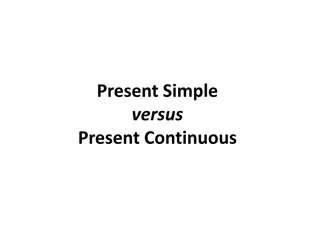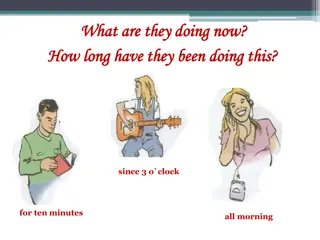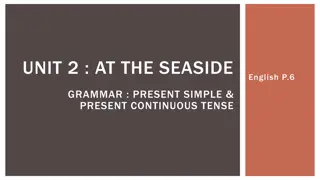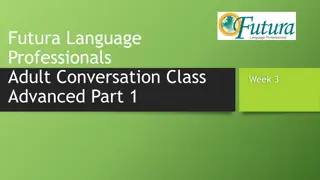Understanding the Present Continuous Tense
Explore how to form the Present Continuous Tense using the present simple of 'be.' Learn how to create affirmative, negative, and interrogative forms, including 'wh-' questions. Discover the spelling rules for verbs ending in 'e,' short one-syllable verbs, and those ending in 'ie.'
Download Presentation

Please find below an Image/Link to download the presentation.
The content on the website is provided AS IS for your information and personal use only. It may not be sold, licensed, or shared on other websites without obtaining consent from the author. Download presentation by click this link. If you encounter any issues during the download, it is possible that the publisher has removed the file from their server.
E N D
Presentation Transcript
HOW TO MAKE THE PRESENT CONTINUOUS TENSE Present Continuous Tense
HOW TO MAKE THE PRESENT CONTINUOUS TENSE present simple of 'be' present simple of 'be'
WE CAN MAKE THE NEGATIVE BY ADDING 'NOT': Negative Form Short Form I am not sleeping I'm not sleeping you are not playing you aren't playing he is not reading he isn't reading she is not working she isn't working it is not raining it isn't raining we are not cooking we aren't cooking they are not listening they aren't listening
INTERROGATIVE FORM Questions are also really, really easy. Just like we made the question with 'be' in the present simple, here we also put 'am', 'is', or 'are' before the subject to make a 'yes / no' question: am I eating chocolate ? are you studying now ? is he working ? is she doing her homework ? is it raining ? are we meeting at six ? are they coming ?
INTERROGATIVE FORM WITH WH- QUESTIONS For 'wh' questions, just put the question word at the front:
SPELLING: VERBS THAT END WITH ONE E , + ing. examples bake baking love loving take taking make making have having
SPELLING: SHORT ONE-SYLLABLE VERBS ENDING IN CVC , , , + ing. examples sit sitting get getting run running put putting stop stopping swim swimming
SPELLING: VERBS ENDING IN IE ie , ing examples die dying lie lying tie tying
USES First, we use the present continuous for things that are happening at the moment of speaking. I'm working at the moment. Please call back as we are eating dinner now. The next use is for definite future arrangements (with a future time word). In this case we have already made a plan and we are pretty sure that the event will happen in the future. I'm meeting my father tomorrow. We're going to the beach at the weekend.
LINKS https://www.youtube.com/watch?v=z7xA8V5JtbQ https://www.youtube.com/watch?v=PjJxxhuBj0g https://www.youtube.com/watch?v=We_m8tyMqc E , .
EXERCISES Ex. 1 . Add + ing to the given verbs leave - live - cook - . study - . write - . try - . put - . lie - .. stand - swim - fly - . read - .
EXERCISES Ex. 2. Make negatives from the given sentences. Sara and Tom are playing squash together now. .. Jim is not going to school on Monday. .. I am reading a book and listening to music. ..
EXERCISES Ex. 3. Make questions from the given sentences. My best friends are going to Spain next year. .. I am thinking about you. .. Tom s sister is studying Japanese at the moment. ..
Ex. 4 Put the words in the correct order to make sentences in Present Continuous. Sara / playing/ Tom/ ball / are/ ?/ the / ball/ with/ not / my / living / nice / friends / are/ flat / a / nice/ in/ having / party / Sunday / I / on / am / a / ? / Sandy s / studying / brothers / French / at / are / university /
EXERCISES Write the verbs in Present Continuous Look! The bus (come) Julia (teach) Spanish this term. Carol (study) French right now. The kids . (sing) a song. We ..(not surf) in the web. Tina .. (wear) a black dress. My brothers (sit) on a bench. Barbara (go) to school. Christine (travel) by plane. Those cats .. (play) with a ball. That bird . (fly) very high. The mechanic (mend) the cars. My sister (do) some housework.
Teacher Aleksandra Simoncevska Necovska OU.Sv.Kiril i Metodij- Bitola
